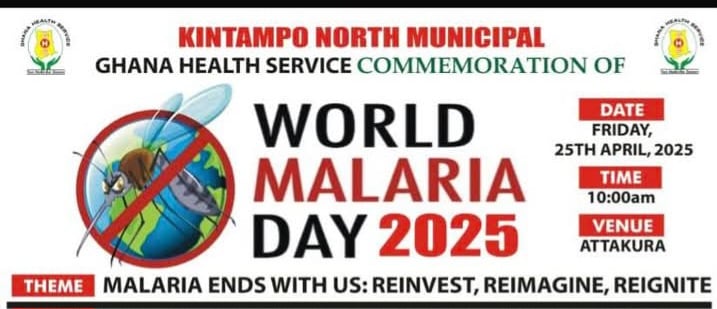Malaria remains one of Ghana’s most persistent public health challenges, despite decades of intervention. While reported malaria deaths have declined—dropping from 2,799 in 2012 to 151 in 2022—the disease remains endemic, disproportionately affecting pregnant women and children under five. Ghana has pledged commitment to malaria elimination, but the question remains: Will this be another cycle of empty promises, or will decisive leadership turn words into action?
At the same time, poor sanitation and hygiene practices continue to threaten public health, increasing the risk of diseases beyond malaria. Illegal waste dumping, clogged drainage systems, and unhygienic community environments exacerbate the problem. True leadership must rise above rhetoric and drive real change, enforcing hygiene policies, reviving proven strategies, and engaging the community in sustainable solutions.
The Gaps: Where Leadership Must Step Up
Despite notable efforts, several key challenges threaten the goal of malaria elimination and sanitation reform:
Inconsistent Funding & Political Will – Malaria programs suffer from fluctuating budgets, limiting sustained interventions. Sanitation laws lack strict enforcement. Limited Vaccine Rollout & Accessibility – The RTS,S malaria vaccine has been introduced but requires broader distribution and a second-generation vaccine for improved efficacy. Gaps in Vector Control – Mosquito resistance to insecticides threatens control strategies. New biotechnological approaches and environmental management must be prioritized. Weak Surveillance & Community Engagement – Poor tracking reduces targeted interventions. Grassroots communities lack empowerment to uphold hygiene standards. Neglected Waste Management & Hygiene Policies – Poor drainage systems and illegal dumping, especially during rains, worsen sanitation. Leadership must reintroduce structured enforcement teams like the “tankase” Community Engagements that once upheld hygiene standards.
The Leadership Imperative: What Must Be Done
To eliminate malaria and improve sanitation, Ghana’s leadership must take bold steps in the following areas:
1. Reintroduce Town Council Inspection Teams – Dedicated sanitation officers must monitor communities, ensuring households and businesses maintain clean surroundings.
2. Enforce Hygiene Laws with Court Prosecution – Strict penalties for illegal waste disposal, including fines and community service, can deter reckless dumping.
3. Expand the Malaria Vaccination Program – Strengthen the RTS,S rollout and fast-track adoption of next-generation malaria vaccines.
4. Enhance Vector Control & Environmental Clean-up – Introduce genetic mosquito-control solutions, innovative insecticide strategies, and eco-friendly larval source management.
5. Implement Rigorous Surveillance – Utilize AI-driven analytics and geospatial mapping to identify malaria hotspots for rapid intervention.
6. Secure Sustainable Funding – Beyond government budgets, private sector investment and international partnerships must help finance malaria elimination and sanitation reforms.
7. Revive “Tankase” Community Engagements – Leadership must restore community-driven inspections where local teams identify and prosecute sanitation violators, ensuring cleaner environments.
Conclusion: Leadership as the Catalyst for Change
Ghana has a unique opportunity to set a precedent for malaria elimination and sanitation reform, but success depends on a shift from political rhetoric to sustained action. Reintroducing “tankase” Community Engagements, town council inspections, and strict enforcement of hygiene laws will foster accountability and strengthen community resilience.
Leadership must go beyond promises and policies—it must execute, enforce, and empower. The future of a malaria-free and hygienic Ghana depends on the decisions made today. The time for fragmented efforts is over—comprehensive, well-funded, and scientifically backed strategies must take center stage.
Ghana can lead the way, but only if leadership rises to the challenge.
Retired Senior Citizen
Teshie-Nungua
[email protected]


